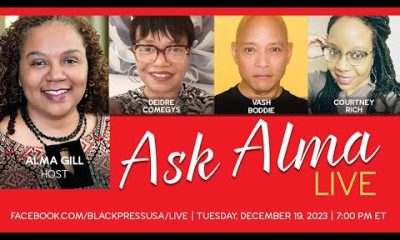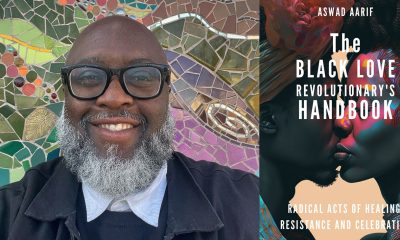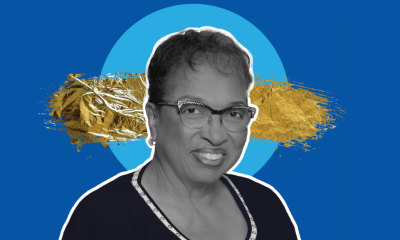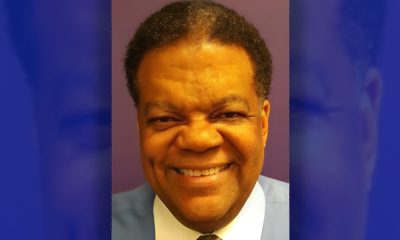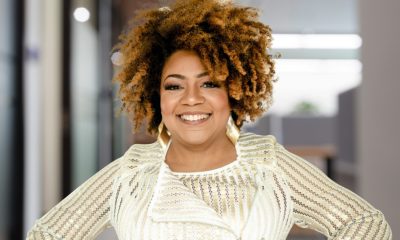Advice
Hidradenitis suppurativa: hard to pronounce, hard to live with, and hard to treat
MINNESOTA SPOKESMAN-RECORDER — No one knows for sure what exactly causes HS. One theory is that HS is the result of an abnormality in hair follicles. HS tends to occur when hair follicles become blocked, leading to a clogged hair follicle. When the follicle is blocked, pressure builds up in the follicle, causing a rupture and leakage to the sides of the follicle, deep into the skin. The leakage produces a response by the immune system to the material in the skin. The immune response is in the form of inflammation.
Dr. Crutchfield, my cousin had a skin problem where she developed pimples in sensitive areas that would get bigger, become painful, turn into boils and break. The areas would smell bad. She saw a dermatologist and was diagnosed with a condition called “hidradenitis suppurativa.” What is hidradenitis suppurativa?
Hidradenitis suppurativa (HS) is a chronic inflammatory skin condition that may be caused by an inappropriate response of the body’s immune system.
No one knows for sure what exactly causes HS. One theory is that HS is the result of an abnormality in hair follicles. HS tends to occur when hair follicles become blocked, leading to a clogged hair follicle. When the follicle is blocked, pressure builds up in the follicle, causing a rupture and leakage to the sides of the follicle, deep into the skin. The leakage produces a response by the immune system to the material in the skin. The immune response is in the form of inflammation.
This cycle can repeat itself over and over and in many areas, producing a chronic medical condition. The lesions of HS appear as boils in the skin. The medical term for a boil is an abscess. The abscesses of HS can be mild, moderate, or severe.
- Mild: This means a single abscess or a few abscesses that don’t connect or drain. They can be very painful.
- Moderate: Commonly, several abscesses are widely separated. These are painful. They may connect and drain with pus and blood.
- Severe: Multiple abscesses that are close together and cover large areas. These are painful and drain profusely. The common areas are the scalp, on the neck, around the ears, under the arms, under the breasts, in the groin, and on the backside. These areas coincide closely with hair-bearing areas.
HS starts as pimples in sensitive hair-bearing areas that enlarge and turn into large abscesses that can be extremely painful, connect and rupture, and smell foul. The connection between abscesses is called a sinus tract.
HS is an inflammatory skin disease. It is a chronic medical condition, meaning it lasts for a long time, maybe even a lifetime. Some people mistakenly think that HS is an infection. It is not an infection, but is actually a malfunction of one’s immune system.
There are a lot of misconceptions about HS. Here are some other things you should know:
- HS is not the fault of the person who has it.
- HS is not transmitted sexually.
- HS is not caused by poor personal hygiene.
- HS is not contagious.
What are the symptoms of HS?
The lesions of HS are boils or abscesses. They form under the skin in areas where hair grows and the skin may rub together. They are painful and fill with pus and blood. When they get big, the lesions can rupture and release a very foul-smelling fluid. The amount of fluid produced can be quite significant, and in severe cases they can drain all day long, causing the person to have to wear absorbent pads in the areas that need to be changed often.
Larger regions can connect by tunnels in the skin known as fistulas or sinus tracts. Over time some areas can form scars, and new areas can form. The constant drainage of bad-smelling drainage can lead to a foul odor that travels with the affected person.
As one could imagine, the condition is terribly embarrassing and can interfere or prevent normal personal social interactions, leading to an inferior quality of life. As a result, many dermatologists believe that HS is one of the very worst skin diseases to have.
In some cases, HS may temporarily subside, but it often comes back. It may start out as mild but rapidly progress to severe. Being overweight and smoking are two factors that can be managed and have an impact on the severity and progression of the disease.
Treatment
Physicians will recommend smoking cessation and weight reduction. In addition, these treatments are available:
- Antibiotics (as anti-inflammatories, not to treat infection)
- Steroids
- Surgery
- Hormone therapy
- Immunosuppressant medications
- Biologic medications
HS can be devastating for self-esteem and lead to profound depression. If HS is impacting social relationships, self-esteem, and/or depression, it is important to talk to experts in the fields of mental and sexual health. It also may be helpful to join a support group so you can share feelings and information with other people who have HS.
For stubborn or severe cases, you should visit a dermatologist who specializes in HS. These dermatologists are medical doctors who have experience in diagnosing and treating inflammatory conditions of the skin. They understand what you’re going through and can recommend treatment options that are appropriate for you.
There are good treatments for HS, and no one should have to suffer from this terrible condition. Fortunately, there is an FDA-approved biologic treatment (named ‘adalimumab’) for HS.
To find a dermatologist who specializes in the treatment of HS and for a list of national support groups to join, visit www.noBSaboutHS.com.
This article originally appeared in the Minnesota Spokesman-Recorder.
Activism
Leading with Action, Love and Data Points: Six Questions for the California Black Women’s Collective
“Black Women in California have always had to be active participants in the labor market, but this report showcases the need for fair and just wages even for those of us with higher educational attainment,” said Kellie Todd-Griffin, President and Chief Executive Officer of the California Black Women’s Collective.
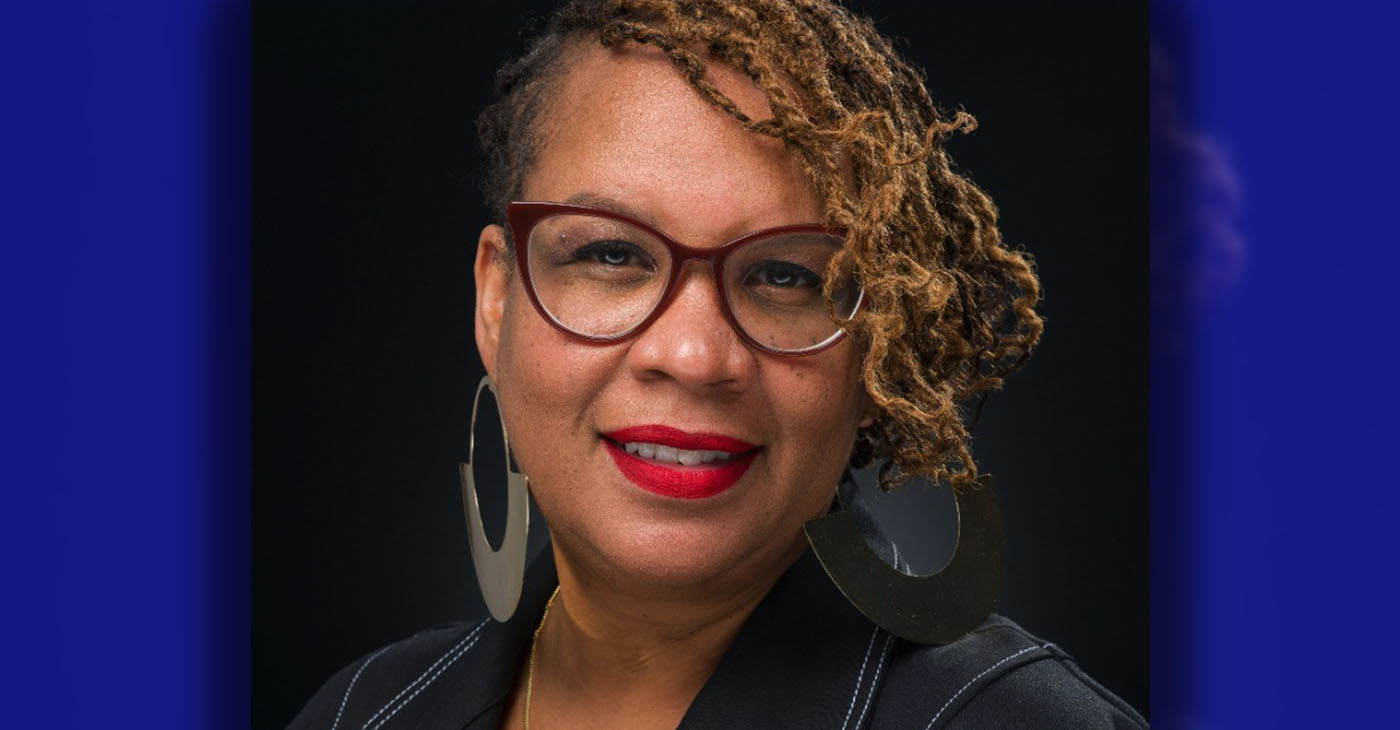
By Edward Henderson | California Black Media
The California Black Women’s Collective (CABWC) is a sisterhood of women from different professional backgrounds aiming to uplift and address the issues impacting Black women and girls in the state. They approach problem-solving with a range of expertise — from politics, business, and community advocacy to the arts, entertainment, social justice activism, and more.
Earlier this month, the organization released a wage report focused on Black women’s earnings in California titled “Pay Me What I am Worth.”
“Black Women in California have always had to be active participants in the labor market, but this report showcases the need for fair and just wages even for those of us with higher educational attainment,” said Kellie Todd-Griffin, President and Chief Executive Officer of the California Black Women’s Collective.
“Black Women in California wages are below the state mean wage and make less than most of their female counterparts in every category,” continued Todd-Griffin. “We must take action now.”
CABWC’s Black Girl Joy Festival is an event designed to uplift Black Women and Girls in a safe space while learning and having fun. The festival includes free workshops that prepare women for college, dancing, self-defense training, health screenings, yoga, arts & crafts, and food vendors.
The Collective’s Empowerment Institute, launched in collaboration with the Los Angeles-based research firm EVITARUS, produces the annual California Black Women’s Quality of Life Survey.
California Black Media spoke with Todd-Griffin about the organization’s impact, challenges it faces and some of its near-term plans.
What does your organization do to improve the lives of Black people in California?
The California Black Women’s Collective Empowerment Institute’s uplifts the issues and voices of Black Women and Girls in California through our programming. That includes the Black Women’s Worker Initiative that helps Black Women prepare for public section and non-traditional careers. Other initiatives are the CA Black Women’s Leadership Development Certificate program at CSU Dominguez Hills; Black Girl Joy Festival for middle and high school students; Conversations for Black Women, etc. Our targeted research also uncovers solutions to the toughest challenges Black women and girls face.
What was your greatest success over the course of the last year?
We released the first-ever California Black Women’s Quality of Life Survey. This study collected insights from 1,258 Black women voters across California to understand their economic state, most pressing concerns, their attitudes toward policymakers, and their experiences and issues in California.
In your view, what is the biggest challenge Black Californians face?
Black Californians, especially Black Women, continue to be left out of the conversation when it comes to building meaningful change to improve the lives of those who struggle the most.
What was your organization’s biggest challenge?
Our biggest challenge over the last year was transitioning from a volunteer driven entity, the California Black Women’s Collective, to creating a non-profit organization, the California Black Women’s Collective Empowerment Institute.
Does your organization support or plan to get involved in the push for reparations in California?
Absolutely!
How can more Californians of all backgrounds get involved in the work you’re doing?
We are on all the social media channels. They can also visit our website, www.CABlackWomensCollective.org.
Activism
The Silent Struggle of Pregnancy Loss
It is a tragedy that Black women’s odds of pregnancy loss are much higher than the general population. It’s even more tragic that there is a Black woman reading this article who has experienced pregnancy loss and has suffered in silence. There are an array of feelings associated with pregnancy loss, and women often feel alone and isolated in these feelings believing that no one understands what they are going through.
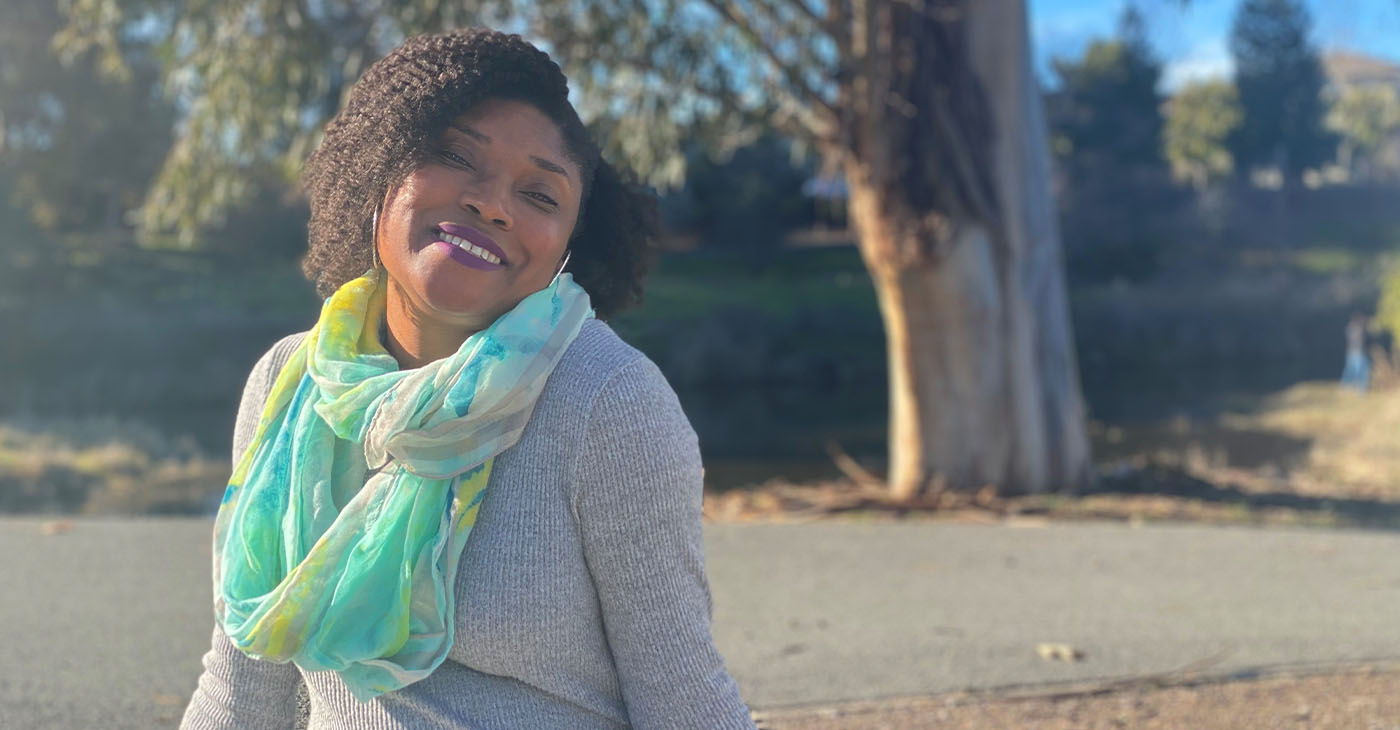
By Narissa Harris, LMFT
The topic and contents of this article may be difficult for some readers. Yet, it is of paramount importance to shed light on the silent struggle of pregnancy loss experienced by countless women.
During the holiday season, we often assume everyone is in a festive, happy mood. However, this time of year is filled with mixed emotions and can be especially difficult for Black women, who are 2-3 times more likely to experience a pregnancy loss compared to other women. Pregnancy loss (the death of an unborn baby/fetus during pregnancy) is experienced by 10-15% of women and doubles to 20-30% for Black women. Additionally, Black women are 3 times more likely to have a stillbirth in comparison to other women.
It is a tragedy that Black women’s odds of pregnancy loss are much higher than the general population. It’s even more tragic that there is a Black woman reading this article who has experienced pregnancy loss and has suffered in silence. There are an array of feelings associated with pregnancy loss, and women often feel alone and isolated in these feelings, believing that no one understands what they are going through.
Whether you are aware that someone has experienced pregnancy loss, or you have experienced pregnancy loss yourself, we must be sensitive and supportive to the women in our lives during this time of year. I encourage the following:
#1 – Don’t ask a woman about her uterus!
Yes, I know this is blunt and harsh, but it is important to be mindful of the trauma that may be triggered when asking a woman when she plans to have a baby. I will never forget being at a holiday party when a family member asked me when I was planning on having kids, unaware that I experienced my 3rd pregnancy loss just 6 weeks prior. It was triggering, upsetting, and annoying. While my husband and I were eventually blessed with 2 healthy children, I share my experience to reiterate the immediate and long-term harm caused by these types of invasive inquiries.
#2 – Connect with a supportive community!
If you are someone who has experienced a pregnancy loss or know a woman who has, it is vital to connect with a safe and supportive community even when everything is telling you (or that woman) to isolate. While no one in the chapter knew that I was dealing with pregnancy loss at the time, my connection with the Bay Area Chapter of the Association of Black Psychologists (Bay-ABPsi) served as a healing and uplifting space for my grief/loss. I learned from Baba Dr. Wade Nobles, who describes babies as divine and the closest beings to God. I want you to remember that connecting with our spiritual community and ancestors can offer healing and support.
#3 – Never lose hope!
To the women who have experienced pregnancy loss, it’s easy to believe that a successful pregnancy will not happen but keep the hope. Take the time you need to grieve and release the baby (or babies), allowing your womb to heal. View the lost pregnancy in terms of a spirit with a Divine purpose, even if it was short-lived, with you being the vessel for that Divine purpose. Believe and prepare for your baby, who will survive and succeed beyond the womb to fulfill their Divine purpose!
Bay ABPsi is a healing resource committed to providing the Post Newspaper readership with monthly discussions about critical issues in Black Mental Health. Readers are welcome to contact us at bayareaabpsi@gmail.com and join us at our monthly chapter meetings every 3rd Saturday via Zoom.
Advice
BOOK REVIEW: “The Day After Yesterday: Resilience in the Face of Dementia”
Well into his twenties, Joe Wallace was asked to sit with his “Granddaddy Joe” while Wallace’s mother and grandmother ran errands. His grandfather was once a vibrant man, and he’d been Wallace’s “hero,” but Alzheimer’s had put a curtain of sorts between them, and Wallace was “so frightened to be left alone with him.” It didn’t take long for him to realize that day that his grandfather was full of stories, and it was “magical.” He applied the same kind of patience when his grandmother began to experience dementia, too, and this spurred Wallace to tell a story of his own with his camera.
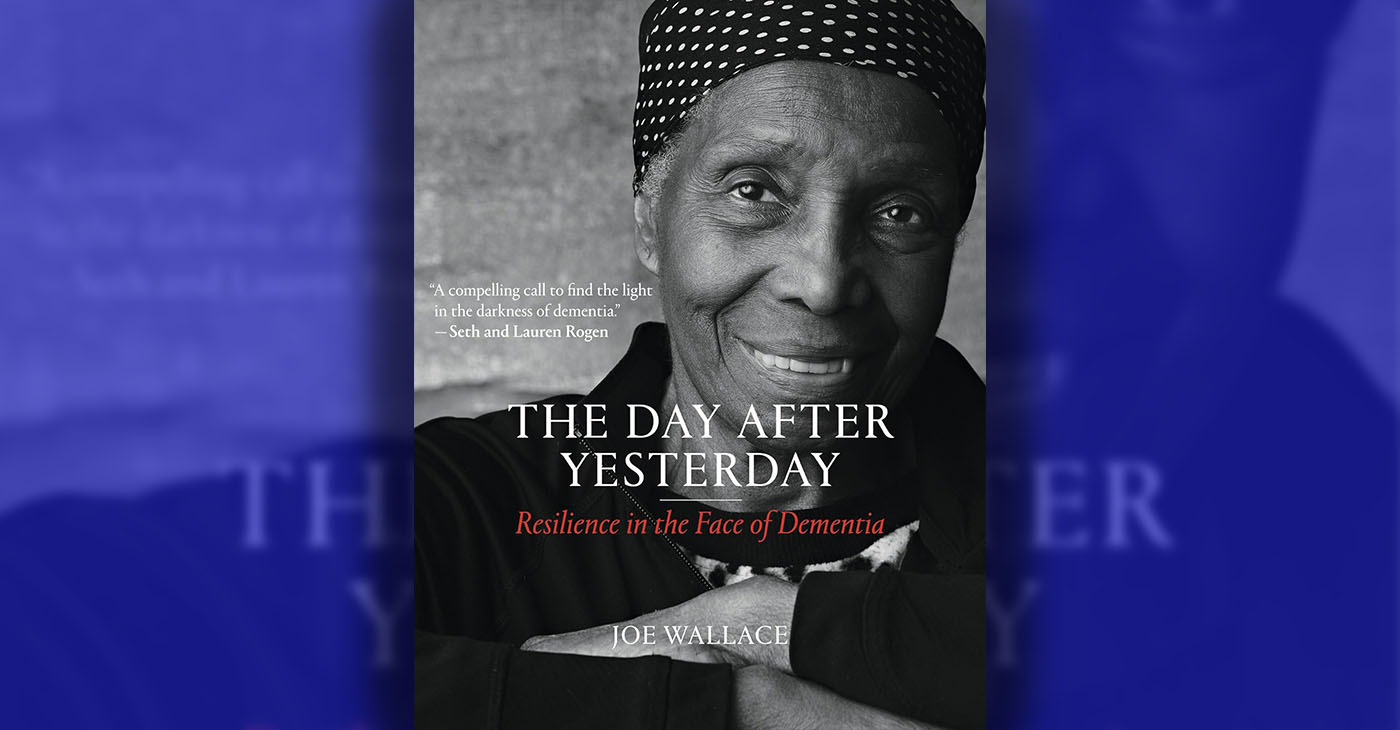
By Terri Schlichenmeyer
Sometimes, Mom talks a lot of nonsense.
She talks in random syllables, half-jokes, thoughts that come out of her mouth backwards or mixed up. You try, she laughs, you laugh, pretending that you understand but you don’t. Mom has dementia and there’s nothing that’ll fix it, but you can read “The Day After Yesterday” by Joe Wallace and change the conversation.
Talk about your awkward encounters.
Well into his twenties, Joe Wallace was asked to sit with his “Granddaddy Joe” while Wallace’s mother and grandmother ran errands. His grandfather was once a vibrant man, and he’d been Wallace’s “hero,” but Alzheimer’s had put a curtain of sorts between them, and Wallace was “so frightened to be left alone with him.”
It didn’t take long for him to realize that day that his grandfather was full of stories, and it was “magical.” He applied the same kind of patience when his grandmother began to experience dementia, too, and this spurred Wallace to tell a story of his own with his camera.
The portraits he captured eventually became an exhibit, and this book.
“In the United States,” Wallace says, “one in three seniors suffers with Alzheimer’s or another dementia at the time of their death.” Nearly $700 billion dollars annually is spent caring for people with dementia. Alzheimer’s, as one of Wallace’s subjects points out, affects Black seniors more often than it does whites. For that matter, people with dementia need not be seniors: early-onset Alzheimer’s can affect someone in their early 20s.
Listen, Wallace’s subjects almost always say, and don’t hide a diagnosis of dementia. There’s no shame in it. Reach out to others who’ve received the diagnosis. Ask for help. Watch for suicidal thoughts and depression. Ask for stories, before they’re lost, and be honest about what’s going on. You can’t change the diagnosis, but you can change your attitude toward it.
It’s called The Long Goodbye for a reason – and yet, your loved one with dementia is still on this side of the sod and you know there’s still some there there. In “The Day After Yesterday,” you’ll get a new point-of-view, for both of you.
In his introduction interview, author Joe Wallace explains how he came to understand that “we could all do so much better” for those with cognitive disabilities, including Alzheimer’s, and why eliminating fear and awkwardness is essential. Readers will be quite taken by the then-and-now pictures and by the conversations Wallace captured.
But beware: this isn’t a book on caregiving or advice-giving. It’s a delightful, heartbreaking, tearful, surprising collection of profiles of everyday people in their own words, people who go with the flow and deal with tomorrow when it comes. Yes, you’ll find advice here, but it pales in comparison to the presence that Wallace’s subjects and their families exhibit.
This powerful book is great for someone with a new dementia diagnosis; it proves that life is not over yet. It’s likewise great for a caregiver, gently ushering them toward grace.
Get “The Day After Yesterday. It’s time for a talk.
“The Day After Yesterday: Resilience in the Face of Dementia” by Joe Wallace
c.2023, The MIT Press. $34.95; 157 pages.
-

 Activism4 weeks ago
Activism4 weeks agoOakland Post: Week of March 27 – April 2, 2024
-

 #NNPA BlackPress4 weeks ago
#NNPA BlackPress4 weeks agoCOMMENTARY: D.C. Crime Bill Fails to Address Root Causes of Violence and Incarceration
-

 #NNPA BlackPress4 weeks ago
#NNPA BlackPress4 weeks agoMayor, City Council President React to May 31 Closing of Birmingham-Southern College
-

 #NNPA BlackPress4 weeks ago
#NNPA BlackPress4 weeks agoBeloved Actor and Activist Louis Cameron Gossett Jr. Dies at 87
-

 Community1 week ago
Community1 week agoFinancial Assistance Bill for Descendants of Enslaved Persons to Help Them Purchase, Own, or Maintain a Home
-

 Activism3 weeks ago
Activism3 weeks agoOakland Post: Week of April 3 – 6, 2024
-

 Business1 week ago
Business1 week agoV.P. Kamala Harris: Americans With Criminal Records Will Soon Be Eligible for SBA Loans
-

 Community1 week ago
Community1 week agoAG Bonta Says Oakland School Leaders Should Comply with State Laws to Avoid ‘Disparate Harm’ When Closing or Merging Schools

